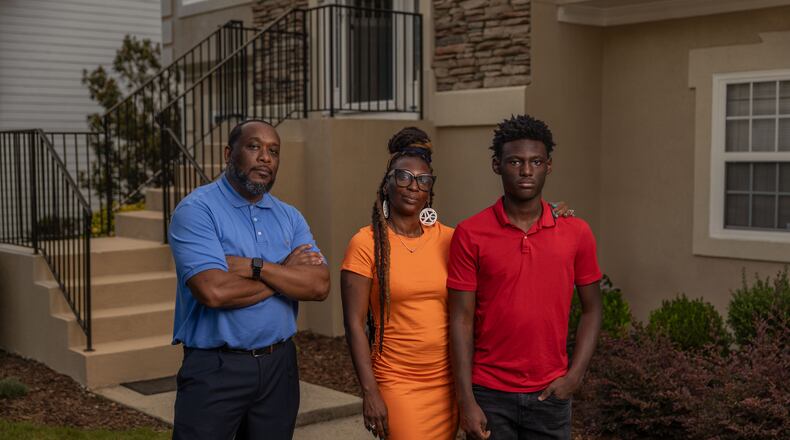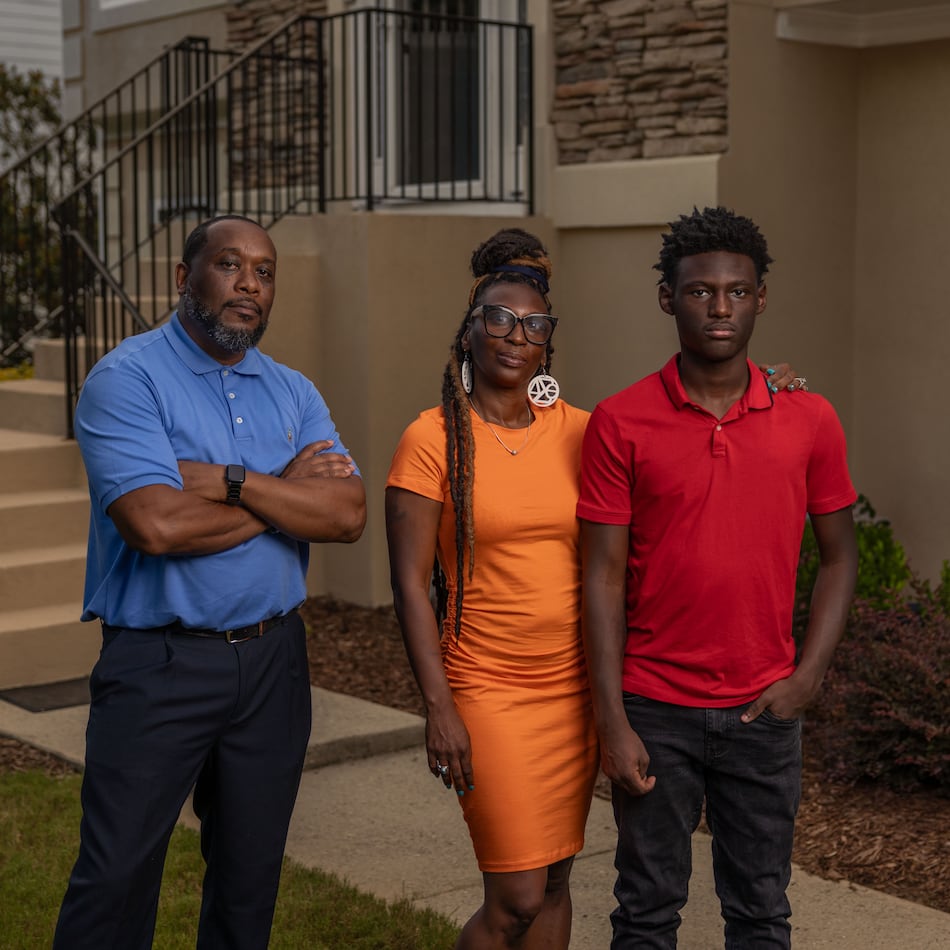After years of trauma stemming from a botched FBI raid in which armed agents mistakenly targeted her Atlanta home, Trina Martin praised the U.S. Supreme Court’s decision to revive her lawsuit.
On Thursday, Martin called the high court’s ruling a victory not just for her family, “but also for everyone who is fighting for accountability and justice.
“This isn’t over, but we look forward to continuing the fight,” she said in a statement. “What happened to us was wrong and should never happen to anyone.”
In its unanimous decision, the court sent Martin’s case back to the 11th U.S. Circuit Court of Appeals, giving her family another chance to pursue their claims against the federal government over the botched predawn raid.
Sharon Fairley, a law professor at the University of Chicago, said while it’s certainly not a “slam dunk” for the plaintiffs, the court’s ruling provides a glimmer of hope that Martin and her family could prevail.
“It’s an important case just because these circumstances happen more frequently than we would hope,” said Fairley, a former federal prosecutor. “The court’s interpretation of this statute could have broad impact because it’s so important to seeking redress for the misdeeds of federal law enforcement.”
Martin, her then-partner Toi Cliatt and her son Gabe Watson said they were startled awake just before 5 a.m. on Oct. 18, 2017, when a six-agent SWAT team busted down their front door, set off a flashbang grenade in their entryway and pointed guns at them before realizing they had the wrong house.
Credit: Courtesy Institute for Justice
Credit: Courtesy Institute for Justice
The target of the raid was an alleged violent gang member reportedly living a block away on a different street, case records show.
In its decision, the justices ruled the 11th Circuit wrongly applied federal law when dismissing the family’s claims and must now determine if an exception in the Federal Tort Claims Act shields the government from liability.
Justice Sonia Sotomayor suggested in her concurring opinion that the family’s claims may survive that test because the FBI raid on their home seems so unreasonable.
“It is hard to see how (the lead agent’s) conduct in this case, including his allegedly negligent choice to use his personal GPS and his failure to check the street sign or house number on the mailbox before breaking down Martin’s door and terrorizing the home’s occupants, involved the kind of policy judgments that the discretionary-function exception was designed to protect,” Sotomayor wrote.
Martin, Cliatt and Gabe said they received an apology from the FBI agent who led the raid but were left with a damaged home and lingering trauma.
In case filings, the federal government said the lead FBI agent had relied on a GPS device to find the target home in the dark, and later told Martin and Cliatt the FBI would cover the damage to their property.
The family sued the federal government and the lead agent in 2019, accusing the agents of assault and battery, false arrest and other violations.
But the case was thrown out by a federal judge in Atlanta whose ruling was later upheld by the 11th Circuit. The lower courts cited sweeping legal protections that shield the federal government and its employees from lawsuits.
The appellate court determined the lead agent was immune from liability and that the claims brought against the government under the Federal Tort Claims Act were barred by an exception to that law and a clause of the U.S. Constitution. While the government is typically immune from lawsuits, Congress changed the law to allow for certain exceptions after a pair of wrong-house raids made headlines in the 1970s.
The federal government had asked the Supreme Court to reject the family’s attempt to revive the case, which experts say could have wider implications for allegations of wrongful actions by federal employees and law enforcement officers in particular.
The justices said it was wrong to toss the lawsuit based solely on the Supremacy Clause, which says federal laws supersede state laws when the two conflict. The FTCA serves as an exception to that clause, so the government can’t use it as a defense, the justices found.
“Congress has entered the field and expressly bound the federal government to accept liability under state tort law on the same terms as a ‘private individual,’” Justice Neil Gorsuch wrote in the opinion.
In a concurrence joined by Justice Ketanji Brown Jackson, Justice Sonia Sotomayor suggested that raids on wrong houses likely aren’t the kind of mistakes that are immune from liability.
Patrick Jaicomo, an attorney representing the family, said the Supreme Court was right to revive the lawsuit over the botched raid.
“The Court’s decision today acknowledged how far the circuit courts have strayed from the purpose of the Federal Tort Claims Act, which is to ensure remedies to the victims of federal harms — intentional and negligent alike,” he said in a statement. “We look forward to continuing this fight with the Martins in the Eleventh Circuit and making it easier for everyday people to hold the government accountable for its mistaken and intentional violations of individual rights.”
Credit: Courtesy Institute for Justice
Credit: Courtesy Institute for Justice
— The Associated Press contributed to this article.
About the Author
Keep Reading
The Latest
Featured






